#dr Ali Mattu
Text
How to Listen Like a Therapist: 4 Secret Skills
"I'm gonna show you the 4 secret skills therapists use to listen and teach you how you can start using the skills to improve your relationships TODAY." - Dr. Ali Mattu
“I’m gonna show you the 4 secret skills therapists use to listen and teach you how you can start using the skills to improve your relationships TODAY.” – Dr. Ali Mattu
How to Listen Like a Therapist: 4 Secret Skills is a motivational video from YouTube Channel The Psych Show and the inspirational speaker is Dr. Ali Mattu. Video Run Time: 15:50
This is a review for Your reviewing pleasure*
I’m…

View On WordPress
0 notes
Text
Psychologist reveals how loneliness affects the mind and body [ Ageing ]
Psychologist reveals how loneliness affects the mind and body [News Summary]
Loneliness can have a crippling effect on our body and mind. Clinical
psychologist Dr. Ali Mattu explains how to manage.
Researchers have uncovered a significant correlation between social
isolation and accelerated biological aging, indicating that individuals…
While it might not be regularly considered a high-risk…
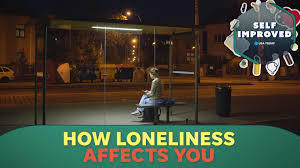
View On WordPress
0 notes
Text
Intrusive thoughts are the lies from the mental illness and are never acted out.
Good thing there's Dr Ali Mattu and Dr Tracy Marks online and help nowadays.
0 notes
Text
need to come clean again i harbor myself a goofy little crush on dr ali mattu
0 notes
Text
Misha Collins and his quest to do a livestream!
Warning:contains Misha's cute giggling.Proceed at your own risk.
Catch the whole livestream at Misha's IG page
Or here
160 notes
·
View notes
Video
youtube
Misha Collins and Dr. Ali Mattu conduct a live Q&A to help those struggling with quarantine life and the anxiety of living during the worldwide CoVid pandemic.
(Uploaded to YouTube for those who aren’t on Instagram or couldn’t figure out the Instagram live thing :-) )
363 notes
·
View notes
Text
Helpful Resources (3/4) | Mental Health
_______________
GOOGLE DOCS VERSION (Updated May 3 2021) | PDF FILE VERSION (for email attachments; updated May 3, 2021)
_______________
Calm Down
Breathe
How to recognize and deal with Burnout
MyNoise.Net, a white noise generator for sleep and noise blocking
Purrli, a noise generator that sounds like a purring cat
A Relaxation Vision Board on Pinterest
Yoga with Adriene
How to help Someone having a Panic Attack
Grounding Techniques and Ideas
__________________________________
Get Educated
Dr. Ali Mattu on The Psyche Show
Quinton on Mental Health Master
Yo Samdy Sam talks about Neurodiversity
Paul talks about his experiences with Aspergers
Jessica talks about her experiences with ADHD
18 notes
·
View notes
Text
Misha: *tries to have a serious livestream with Dr. Ali Mattu about conquering COVID-19 anxiety*
Jared:
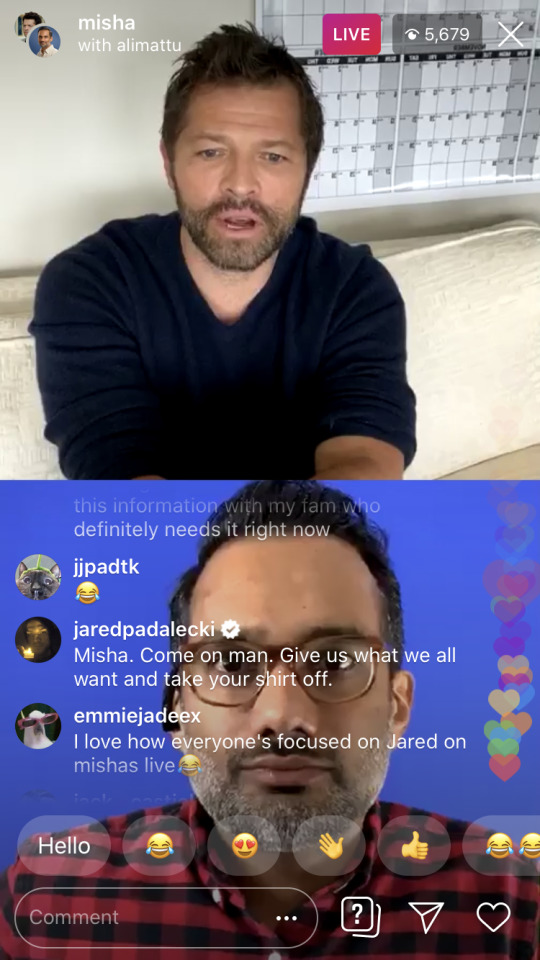
#misha collins#jared padalecki#these boys are ridiculous and i love them#this livestream had some really good tips#id definitely recommend it#supernatural#spn#supernatural funny#spn funny#avelyn watches supernatural
63 notes
·
View notes
Text
A Year like No Other
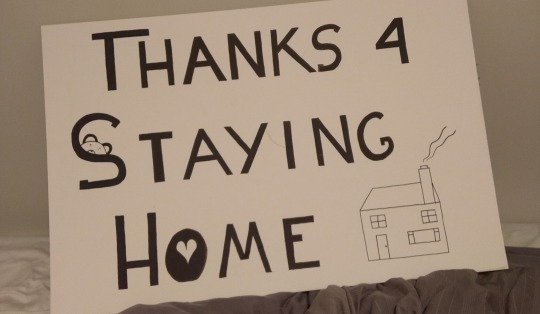
(Taken from, and funded by, my Patreon.)
A lot of people are now calling 2020 the lost year and it’s not difficult to see why. Most of us have never had a year remotely like this last one. For some of us, the calendar began to blur, weeks and even months merging into one another in a sickly, uneasy timelessness that had us double-checking what day it was. For others, there was stress after stress, as we worried about our health, our jobs, our governments, even our countries. And the two experiences certainly weren’t mutually exclusive.
This month, I wanted to take a moment to reflect on that, acknowledging both the struggles and the successes. It’s sometimes been a difficult twelve months for me, but it certainly hasn’t been without its inspirations and its wonderful moments. I wanted to share some of those, to talk about a few ideas and to spotlight the things that helped me through 2020. I hope it helps. I figure it’s as good a time as any for us to be sharing our blessings.
And I think that first involves celebrating you. I think that’s very important. This past month, a year on from the first COVID cases being widely-reported (and also the first reports of cases where I live), I’ve read a lot by people asking questions like “What difference does it all make?” or “What is the point?” when they look back. They ask these questions when they think about things like their life changes, their mask wearing, their activism or their voting. They see an ongoing pandemic, social unrest or political inaction and wonder why they should make an effort while others are lax or apathetic. It’s natural to wonder that. I think anyone can understand the fatigue, the cynicism and the disillusionment.

But I also, get this, have a Hot Take on this that says that the choices you made were vital. When you chose to wear a mask, to socially distance, to restrict when and where you went, you actively helped fight a deadly virus. You may well have saved lives, saved someone’s health, protected livelihoods by acting as you have. When you voted, shared a cause on social media, attended a protest or talked to even one person about helping others or making the world better, you contributed to improving your society.
In fact, I have capital-O Opinions about these things so strap in and hold on, 'cause here they come.
I’ve been very fortunate to share much of my work on the internet over the years, which is a very particular medium, and sometimes that work reaches a lot of people. My experience of this is that you never know who it truly reaches, or when, or even how, and most of the time you never find out. There’s certainly an immediacy to things where you can see, pretty quickly, what the instant reaction to something is, but that’s fleeting. It doesn’t last and, within moments, there’s already something newer demanding more responses.
In time, the true consequences of things shake out. People get back to you with their more considered opinions. Sometimes months, even years after you do something, you find out from someone what they thought about it, how it affected them or even how they were changed. It can take time for a person to realise how they were changed, too, and we rarely have perspective in the moment. Sometimes it takes us years to appreciate the choices and the actions of our friends, our family members, our teachers, our communities. People have contacted me about work I’ve done long, long after I first shared it, and many of those people have come from places that I never expected, have found my work in ways that I never expected. I think, now, that consequence never travels in straight lines. That cause and effect are strangers rather than siblings.
And so I hope it’s clear that the ramble you have so kindly indulged is meant to say that we don’t always notice the good things that we have done. We ask “What difference does it all make?” or “What is the point?” because we don’t get those answers immediately, or for a long time, or sometimes ever. But not knowing when we saved someone’s health, when we changed someone’s mind, even when we inspired someone’s actions doesn’t mean that we aren’t making a difference. There is a point to our life changes, our mask wearing, our activism and our voting.
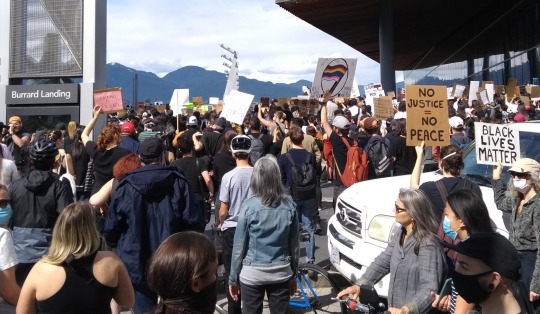
I hope you can celebrate yourself and give yourself credit for the choices you made this last year. They have mattered.
I also want to thank you so, so much for supporting my Patreon. I know many of you have been with me since day one, for more than two years now, and I’m so grateful for both your capital-P Patronage and your presence, whether that’s in our Discord community or through your comments and your correspondence. That’s made a big difference to me this past year, helping me pay rent and put food on the table during a time when so much has been uncertain. 2020 was to be my first full year back in Canada after a complicated, circuitous absence and I had half-finished projects, freelance ideas and half a dozen tabs open in my browser with writing residencies to apply for, everywhere from nearby Richmond to the Yukon Territory. I hoped this would be a year that I’d both finally see more of Canada and be able to write about it, too. A lot of things didn’t quite work out, freelance budgets were slashed, work timelines lengthened and I became ill, but as I look back now I’m thankful for a great deal.
I still managed to fulfill some ambitions. At the start of 2020 I’d been finishing up some work on Zafir, which had been an absolute delight, and I was not far off starting spring work on Magical Kitties Save the Day. The close of the year saw me resuming work on a Feng Shui expansion and each of these projects has been really good for me. All of them gave me a chance to work with skillful, progressive people and to become a better designer.
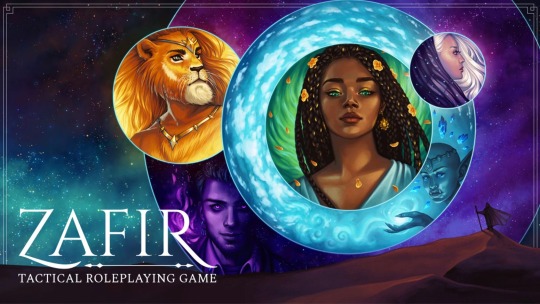
As spring continued, I decided to make a one-off video about board gaming and mental health during a pandemic, partly to offer a practical and helpful introduction to playing board games online and looking after yourself, but also because I wanted people to feel that their actions during a pandemic mattered. Among the things I referenced and linked to, I’ve continued dipping into Headspace from time to time, and this helpful list of brief work-from-home tips has been further updated. I’ve also since further investigated the terrific work of Dr. Ali Mattu, a psychologist and therapist who has produced a lot of material over the last year focusing on how to handle the pandemic.
With the summer came widespread protests across the United States, which highlighted the oppressive and fatal consequences of systemic racism and the urgent need for police reform, both issues not exclusive to the that country (for me, the events echoed the protests that began on my Tottenham street in 2011 and the violent response to 2010’s student protests). I shared a list of resources that I thought were important at the time, but there also followed a wide call for white people to make more effort to both seek out, engage with and promote motion pictures made by Black Americans, or which reflected the Black experience. It wasn’t a big ask and, as well as watching films that had been recommended many times over (such as Us, Da 5 Bloods, The Last Black Man in San Francisco and the excellent BlacKkKlansman, which was the best film I saw last year), I also tried to diversify my social media feeds more. Instagram was host to a growing discussion about how the platform seems to (deliberately or accidentally) divide people by race, something which I think may still be the case, and several nature photographers I follow promoted Tsalani Lassiter and Rae Wynn-Grant. To my delight, among many of the things they speak about and share, both are experts on bears.
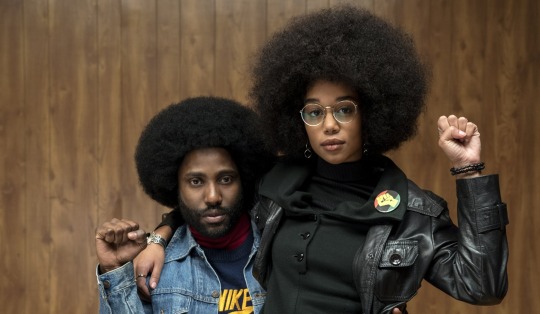
I thought it was important to look more closely at Canada, too, so I made more of an effort to follow Indigenous issues and have begun reading Indigenous news sources, including First Nations Drum, Windspeaker and the Nunatsiaq News. CBC runs its own Indigenous news section, much of which is written by Indigenous reporters.A lot of freelance and writing opportunities dried up as the pandemic contracted the world’s economies, but in 2020 I was able to start writing for VICE, working with my old colleague and friend Rob Zacny, and interview the world’s most famous board game designer. VICE has written a lot of relevant, helpful and informative material about current events over the last year and I was heartened by the words of a fellow VICE writer, Gita Jackson, who concluded her essay about living in The Cool Zone of historical possibility by reminding us how “In The Cool Zone, we can also rediscover hope.”
This year I was also inspired by Faith Fundal’s widely-shared CBC podcast They and Us, which was an excellent (and still rare) example of a mainstream media exploration of gender identity and trans rights, and really pleased for my friend Brendan, who launched his podcast project Hey, Lesson! in the autumn. Of course, I can’t mention podcasts without again reminding you of my love for the spooky, supernatural Death by Monsters, which I got to host last winter. It was my dear friend Paula, one of its presenters, who recommended that I start streaming regularly, something I now do here. She was absolutely right when she talked about how positive and social an experience it can be. It’s been a real joy, as well as added some important structure and schedule to my week.
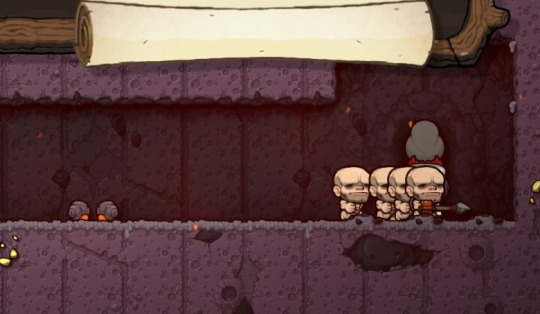
And, of course, the arrival of my first full year as a Canadian resident meant that I got to celebrate my first anniversary as a Canadian resident. I paid my taxes! Let me tell you, it was a slightly confusing and esoteric experience, but it was also one of those mundane, humdrum things that confirms and validates you. Though I didn’t get to throw a party for that anniversary, I did get to enjoy my birthday celebrations before the pandemic really hit. My partner surprised me with a trip to the not-quite-remote-but-definitely-secluded Gibsons, on the quiet British Columbia coastline, which was the best birthday gift anyone’s ever given me and a chance to see more of the rocky, forested, mountainous fringes of a place I’ve fallen so in love with. Before Vancouver closed down, I was also able to collect more than a dozen people (representing five different nationalities!) together in a brewery and then a restaurant, something that now feels like an extremely alien concept. For some of us in our friend group, it’s the last memory we have of coming together and being in the same space. That gives it a pronounced poignancy, a bittersweet quality.
Finally, I’d like to share two more things with you. The first is particularly peculiar and personal: I found my wizard. After drafting this piece last summer, then sharing it in the autumn, a few suggestions led me not straight to my goal, but ultimately down the right path. The game that I was thinking of is called The Tomb of Drewan and I very much doubt that anyone, anywhere is likely to have heard of it. It’s thirty-nine years old this year and it was distributed by a publisher in Berkshire, not so far from where I grew up. It only took me three and a half decades to see what it looks like in colour.
Tracking down this game was a softly satisfying experience. It’s exactly as I remember. Everything makes sense. Reading through the manual reminds me of how difficult it was to try and understand this thing through a monochrome monitor, though I also think it was likely way too complex for the child I was. I don’t think I ever got anywhere. I don’t think I ever could have. But I at least know that my memory has served me well. That wizard was as real as could be.
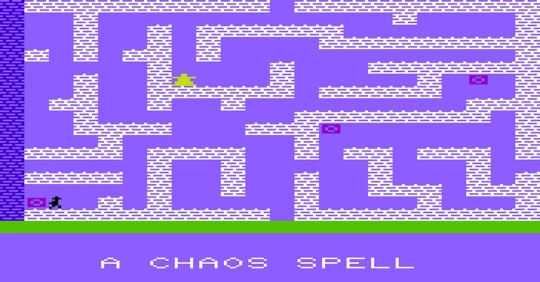
The second thing is something about my own missing year, something that has also resurfaced in my memory as we’ve plodded through 2020. In the long, dark winter months, in the unstructured days and the collapsing weeks, I’ve been transported back to the early 2000s and to a time that now feels very familiar. Here's what that was like.
I’d been writing professionally for a few years, comfortably and competently, while still living in suburban Hampshire. As publishing moved from magazines to the internet, my work began to dry up, my options narrowed and, honestly, I didn’t respond to this shift by producing my best material. I also didn’t know what to do about all this change, becoming directionless and unsure. I didn’t yet have the confidence to take some of the larger steps that I eventually did and, instead, somewhere in all that I began to move backward. I struggled to find work. I slept the strangest hours. I was frustrated, but it also didn’t matter nearly enough to me because also, I was no longer motivated.
I have memories of waking up at all kinds of times of day and night. Of not knowing where to go. Of running out of things to take photographs of, after looking at the same local sights over and over. It was like living at the bottom of a well, with a tiny, distant view of the world and no handholds for climbing out. I wasted time because I had time to waste, something I deeply regret now, and I became crabby, unhealthy and inward-looking. I was far from my best.
The last time I was in England I found myself going through old things from the early 2000s. I found many of the books I read, a great deal of writing I’d done and, in particular, a lot of my old RPG notes. A lot of old RPG notes, an absolute wealth of work that far exceeded anything I’d done outside of any work except that on Paranoia. I’ve written before about my roleplaying past and how I have fond memories of it, but I had completely forgotten exactly how much material I had collected together. I had so many biographies that I’d indexed them. I was starting to form an encyclopedia of everything I’d done, just so that I could find and reference the things I needed.
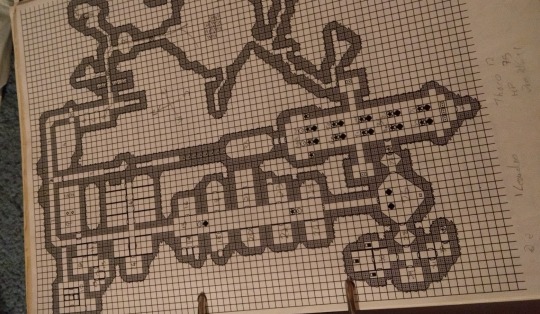
I had also read so much, which both prepared me for my degree and began to make me a better writer. I’d mostly stopped reading in my mid-teens and this was a new spurt of interest that led me toward many of the tastes and preferences I have today. I began to develop my fiction and non-fiction writing styles and I developed an interest in non-fiction that had paid me back a thousandfold.
I was building a new me.
I see now that I didn’t lose a year. I was certainly caught in a swamp of sorts, struggling to make progress, but the experiences I had during that time still mattered. They didn’t matter right away and they didn’t matter in any way that seemed at all obvious to me at the time, but they helped to shape me and to guide me, to show me both what I wanted and, certainly, what I didn’t want. If I had the chance to repeat it, I’d for sure live that missing year differently. I’d live it so much better, so much wiser and so much more fruitfully, but I can at least see it now as not the waste I long thought that it was.
And so I hope it’s clear that the ramble you have so kindly indulged is meant to say that, some time in the future, you may look back on 2020 and find your successes, your satisfaction, even your strength. I don’t mean to disregard anyone’s suffering or sadness, your feelings are valid and the pain, loss and difficulties you’ve encountered are very real. I don’t much like people who dismiss the feelings of others and I apologise if I’ve been too glib. I think a past version of myself needed to read something like this, a long time ago, and I only want to give them, you or anyone who might see this, hope for the future, a few reasons to be optimistic and, very importantly, a reminder to celebrate yourself.
Happy 2021. You made a difference. You always have.
3 notes
·
View notes
Photo
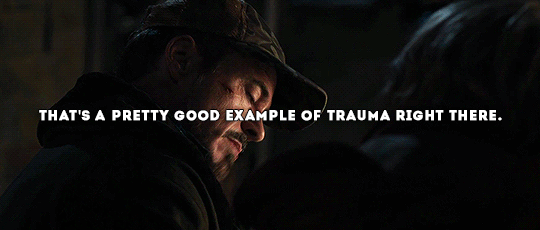
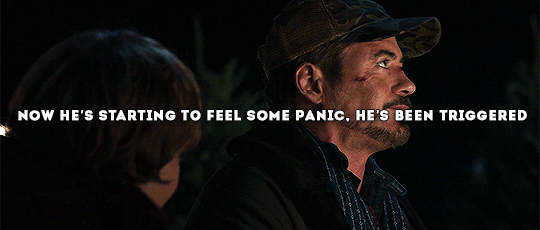
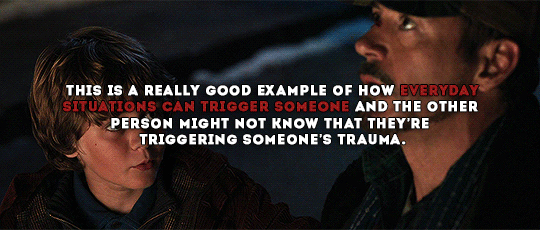
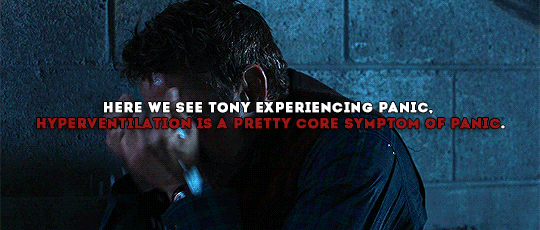
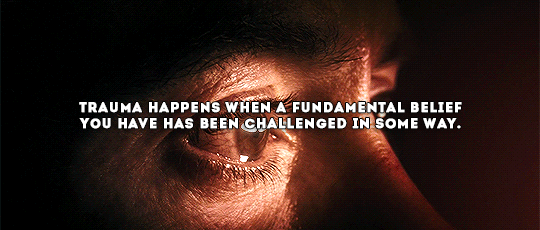
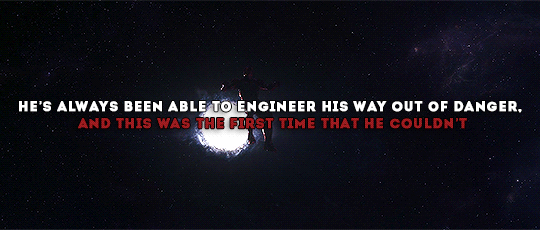
“Iron Man 3[…]is such a good representation of anxiety. […] We see tony stark avoiding a lot of situations that are difficult for him, and that’s a big hallmark of anxiety. It’s a good example of trauma, because trauma happens when a fundamental belief you have has been challenged in some way. He’s always been able to engineer his way out of danger, and this was the first time that he couldn’t.” —Dr. Ali Mattu, clinical psychologist, Reviews Mental Illnesses in Movies
#yeah.gif#marveldit#tonystarkedit#capntony#brolinjosh#tony stark defense squad#tony stark#baby#gif#mine#1
8K notes
·
View notes
Text
On Better Help, Mobile/Teletherapy Services, and Barriers to Traditional Treatment
So apparently there’s been a controversy this past week regarding Better Help and YouTube sponsorships. It centers around YouTuber Philip DeFranco, who gives a summary of what happened and his response to the situation here.
What compelled me to write this post was a video by YouTuber and clinical psychologist Dr. Allison, who gave her own thoughts regarding the recent controversy. It’s a good video and worth your time to watch (or you can read the text version on her website). I’ve never used Better Help or any other mobile/telehealth system for psychotherapy, so I can’t speak to this personally, but I found Dr. Allison’s video informative and full of food for thought.
That being said, I want to give some pushback regarding the use of mobile/telehealth applications and whether it is as effective as in-person psychotherapy.
There is peer reviewed research out there supporting the efficacy of telehealth as a mental health treatment modality. The VA (Veterans Affairs) has been doing some excellent research over the past few years on their telehealth programs in the US, and I’ve also seen research out of Australia regarding their state-sponsored mental health initiative to use telehealth to improve access for rural residents seeking mental health services. While many practitioners have expressed concern about using home-based care to treat conditions in which reducing avoidance and/or leaving the home is part of the treatment, there are also studies that address this question and show that home-based treatment can be just as effective at treating PTSD (Acierno et. al., 2017), Social Anxiety Disorder (Gershkovich et. al., 2016), other anxiety & related disorders (Rees & Maclaine, 2015), and depression (Durl et. al., 2014).
While much of the research about telehealth for mental health concerns has focused on telephone and videoconferencing as alternative means for delivering therapy, there are also studies examining the use of mobile technology for treatment of multiple mental health diagnoses, including depression, bipolar disorder, PTSD, schizophrenia and schizoaffective disorders, and substance use disorders (Lui et. al., 2017). There are certainly limitations to these studies, and the results need to be replicated through more and better studies. Given that the technology is relatively new, however, this is to be expected.
More than that, I think it’s incredibly important for conversations about this topic to be sensitive to the many barriers and other special situations that impact access and treatment-seeking behaviors. For example, a project I’m working on focuses on individuals with mental health concerns who live in a specific rural community where there are no qualified mental health professionals. In that community, getting treatment requires a significant burden of travel, time, and money that is beyond what urban and suburban populations might experience. Sure, campaigning for better access to the telehealth services offered by the local mental health authority (whose nearest clinic is still 40 miles away) might be warranted, but I can’t help wondering if mobile apps like Better Help may be a useful resource for some of them.
Distance is far from the only barrier that might incline someone to seek out alternative means of treatment. What about people who travel or move often and want to have one consistent therapist they can interact with no matter where they are? What about people who are struggling with symptoms of depression, anxiety, or avoidance that demotivate them from physically going to therapy, but who might be more comfortable getting to know someone online? What about individuals who are afraid of being seen at a professional’s office, or whose family/community wouldn’t support their desire to seek treatment? What about people who need specialized care that isn’t available where they are? What about symptoms that pop up in between sessions, or people who struggle to communicate their experiences to the therapist in hindsight?
Don’t get me wrong, I’m not trying to argue that mobile/teletherapy is definitely always as good as in-person psychotherapy. There isn’t enough research yet to say, and a lot of work is going to need to be done in a lot of areas to integrate these options into the system and protect the interests of everyone involved. However, I also don’t think this has to be an all-or-nothing debate. It’s not a competition. There are very legitimate reasons why teletherapy might be more viable for some people than traditional in-person psychotherapy, and there is precedent to think that it could be just as effective as in-person therapy. There may also be advantages to combining both delivery systems when possible.
I do hope, however, that we can avoid conflating one platform’s questionable legalese with the entirety of mobile health, telehealth, and home-based healthcare services. There are major gaps and disparities in getting mental health services to people who need them, and these types of services could make a significant impact on filling those gaps. I, for one, am excited to see how these technologies will change mental healthcare in the future.
Other helpful videos to watch:
“Is Online Therapy Right For You?” by Undefined Therapy. Rashawnda Carey is a Licensed Clinical Social Worker and has worked as a therapist for Better Help. This video predates the recent controversy, but I think her perspective is an important one to hear.
“Why is it so hard to get good therapy?” by The Psych Show. Dr. Ali Mattu, a clinical psychologist, discusses reasons why getting quality psychotherapy isn’t always possible, and he brings up a few ideas for alternative strategies.
Sources
Acierno, R., Knapp, R., Tuerk, P., Gilmore, A. K., Lejuez, C., Ruggiero, K., Muzzy, W., Egede, L., Hernandez-Tejada, M. A., & Foa, E. B. (2017). A non-inferiority trial of Prolonged Exposure for posttraumatic stress disorder: In person versus home-based telehealth. Behaviour Research and Therapy, 89, 57–65. https://doi.org/10.1016/j.brat.2016.11.009
Lui, J., Marcus, D., & Barry, C. (2017). Evidence-based apps? A review of mental health mobile applications in a psychotherapy context. Professional Psychology: Research and Practice, 48(3), 199. https://doi.org/10.1037/pro0000122
Durl, L, Interian A, Pretzer-Aboff I, & Dobkin RD. (2014). Effect of telehealth-to-home interventions on quality of life for individuals with depressive and anxiety disorders. Smart Homecare Technology and TeleHealth, 2014, 105–119. Retrieved from https://doaj.org/article/466a10b08a8b4363a1aa4d8fed594dbb
Gershkovich, M., Herbert, J., Forman, E., & Glassman, L. (2016). Guided internet-based self-help intervention for social anxiety disorder with videoconferenced therapist support. Cognitive and Behavioral Practice, 23(2), 239–255. https://doi.org/10.1016/j.cbpra.2015.08.005
Rees, C., & Maclaine, E. (2015). A systematic review of videoconference‐delivered psychological treatment for anxiety disorders. Australian Psychologist, 50(4), 259–264. https://doi.org/10.1111/ap.12122
3 notes
·
View notes
Text
Y'ALL SPN BRAIN ROT IS 100% APA RECOMMENDED. THANK YOU DR ALI MATTU<3
... okay maybe not to this extent, but i feel validated
15 notes
·
View notes
Photo
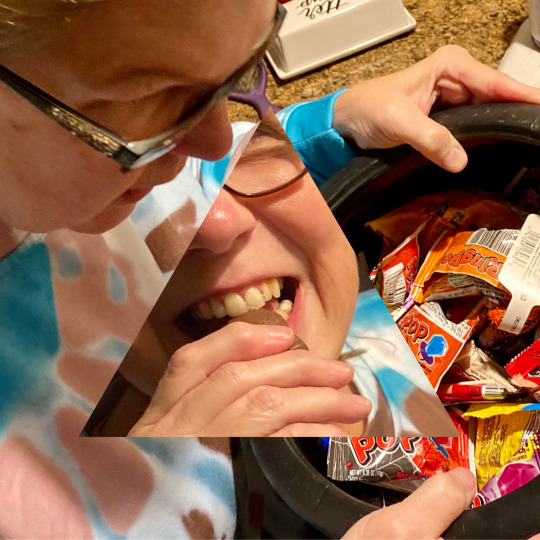
Item 7 IMAGE: ZOOM LIVESCREAM. SUNDAY, NOVEMBER 1, 12:00 PM PT: Facing Your Demons with Dr. Ali Mattu, Rachel Miner, Lisa Berry, & Nicki Aycox. Using double-exposure photography, take a photo of you facing down your inner demon and defeating it or coming to terms with it. (Photoshop is okay!)
0 notes
Video
youtube
NEW VIDEO! The Sounds That Are Unbearable (Misophonia explained)
I've been wondering what the difference is between people finding sounds annoying and distressing. Here, we explore Misophonia, a sound sensitivity syndrome where people have strong emotional reactions to common sounds. We meet my friend Molly Templeton and clinical psychologist Dr. Ali Mattu to talk about the brain basis of Misophonia, trigger sounds, reactions and treatment.
82 notes
·
View notes